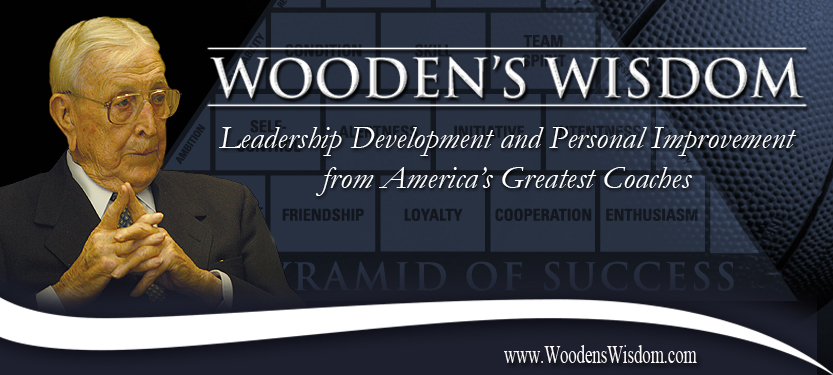 |
|
| Wooden's Wisdom - Volume 11 | Issue 533 |
| Craig Impelman Speaking | Championship Coaches | Champion's Leadership Library Login | |
|
THE KEYS TO EFFECTIVE DIVERSITY (BOOKER T. WASHINGTON PART FOURTEEN) Booker T. Washington was an American educator, author, orator, and adviser to several presidents of the United States. Between 1890 and 1915, he was the dominant leader of American educational innovation and reform.
In 1868, General Samuel Armstrong, Mr. Washington’s mentor, founded the Hampton Institute in Virginia, the first school where African American students could receive a post-secondary education to become teachers. In 1879 General Armstrong initiated a true diversity project. Armstrong, as Mr. Washington described it, "secured from the reservations in the Western states over one hundred Indians" whom he admitted to Hampton to get an education.
Armstrong put Booker T. Washington in charge. Mr. Washington elaborated on the project in his 1901 autobiography, Up From Slavery:
"At first I had a good deal of doubt about my ability to succeed. I knew that the average Indian felt himself above the white man, and, of course, he felt himself far above the Negro, largely on account of the fact of the Negro having submitted to slavery—a thing which the Indian would never do.
On going to Hampton, I took up my residence in a building with about seventy-five Indian youths. I was the only person in the building who was not a member of their race.
It was not long before I had the complete confidence of the Indians, and not only this, but I also had their love and respect. I found that they were about like any other human beings; that they responded to kind treatment and resented ill-treatment.
It was a constant delight to me to note the interest which the black students took in trying to help the Indians in every way possible. Whenever they were asked to do so, the Black students gladly took the Indians as roommates, in order that they might teach them to speak English. I have often wondered if there was any other institution in this country whose students would have welcomed the incoming of more than a hundred companions of another race in the cordial way that these black students at Hampton welcomed the red ones.
How often I have wanted to say to all students that they lift themselves up in proportion as they help to lift others, and the more unfortunate those they help, the more they raise themselves up by giving the assistance."
The key to the success of this Diversity Project was that everybody involved had a noble goal in common: "To lift up those less fortunate than themselves."
What’s the noble common goal of your team?
Yours in Coaching, Craig Impelman
|
The World And Bud If we were all alike, what a dreadful world 'twould be! Edgar Albert Guest (1881-1959)
|
|
For more information visit www.woodenswisdom.com |
|
© Copyright 2026 WoodensWisdom.com | # of Times Wooden's Wisdom Issues Opened: 7,823,231
Hosting & Design by:EverydayWebDesign.com